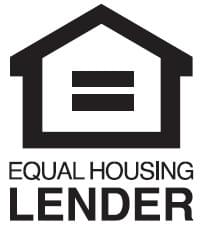A vacation home can be a potential source of income if you want to rent it out when you’re not using it. When the home is in the U.S., overseeing the rental process remotely — finding tenants, collecting rent, and taking care of maintenance and repairs — might be challenging.
That’s why many Canadians who own and rent their property in the U.S. hire rental property managers. A property manager may be an optimal solution, saving you both time and effort, but it’s important to choose the right one for the job. As you consider hiring a property manager for your U.S. vacation home, keep five factors in mind.
1. Choose Between a Company or an Individual Manager
Some property managers are part of larger management companies, while others are individuals running their own small property management businesses. Which one you choose may depend on:
- What you need or want the property manager to do.
- The type of relationship you hope to build.
- How responsive you need the property manager to be.
- What type of rules you’d like the property manager to follow.
An individual property manager may be more likely to do things “your way” and give your rental individualized attention, but may be lacking in some resources.
A management company may be better positioned to assess the true market value of your rental and find an appropriate rental price. Property management companies typically handle all interactions with your tenants, including move-ins, move-outs, and evictions if necessary.
2. Compare the Fees
Property managers, whether individuals or companies, don’t work for free. Some may charge a flat fee for their services, while others charge a percentage of the monthly rent. Additionally, there may be miscellaneous fees to cover things like:
- Showing the home and securing renters during vacancies
- Maintenance and upkeep of the property
- Evicting tenants if necessary
- Advertising costs to list the property
Ask for a copy of the fee schedule before signing a contract to ensure you know what you’re paying for up front. If there are any fees or costs you don’t understand, ask the property manager to explain them thoroughly before signing off.
3. Consider Professional Licensing and Certification
In most states in the U.S., rental property managers are required to have some type of professional licensing. This typically means a real estate broker license, but some states allow a property management license instead. Check the specific laws for the state where the home is located, then ask to see the property manager’s credentials.
It’s also a good idea to check out the property manager’s qualifications beyond licensing. For example, you might ask them:
- How long they’ve been in business.
- What types of rental property they most commonly manage.
- Whether they have experience working with Canadian-based homeowners.
Look into the manager’s reputation as well. The Better Business Bureau is a good place to start, and consumer review sites may offer some insight into how the property manager is viewed by previous clients.
4. Ask About Communication
Being able to communicate with your property manager regularly is important. Ask the property manager if they have a written communication policy in place that spells out:
- Regular business hours for communication
- Typical response times
- Preferred methods of communicating (e.g., by phone, email, text)
- How after-hours calls are handled in case of emergency
If they don’t have a written communication policy, ask so you’re clear on when and how the manager will stay in touch. Remember to take into account any time zone differences so you understand when the property manager is available.
5. Understand How to Handle Unexpected Issues
Renting out a home isn’t always smooth sailing and sometimes, an issue may arise. Your tenant may be late on paying rent, for example, or they may violate HOA rules if your rental is covered by a property association. If there’s an issue with the property — or the tenant — that needs to be resolved, you want to be able to handle those situations quickly.
The property manager you choose should have policies in place to deal with these and other issues that might crop up. Those policies should be included in your contract. Lastly, consider how you might resolve an issue with the property manager. If they’re not holding up their end of the bargain, check your contract to see what recourse you may have in those situations.
RBC Bank is RBC Bank (Georgia), National Association (“RBC Bank”), a wholly owned U.S. banking subsidiary of Royal Bank of Canada, and is a member of the U.S. Federal Deposit Insurance Corporation (“FDIC”). U.S. deposit accounts are insured by the FDIC up to the maximum amount permissible by law. U.S. banking products and services are offered and provided by RBC Bank. Canadian banking products and services are offered and provided by Royal Bank of Canada. U.S. deposit accounts are not insured by the Canada Deposit Insurance Corporation (“CDIC”). RBC Bank, Equal Housing Lender.
More from the Rental Income from U.S. Homes Series:
This article is intended as general information only and is not to be relied upon as constituting legal, financial or other professional advice. A professional advisor should be consulted regarding your specific situation. Information presented is believed to be factual and up-to-date but we do not guarantee its accuracy and it should not be regarded as a complete analysis of the subjects discussed. All expressions of opinion reflect the judgment of the authors as of the date of publication and are subject to change. No endorsement of any third parties or their advice, opinions, information, products or services is expressly given or implied by Royal Bank of Canada or any of its affiliates.



























